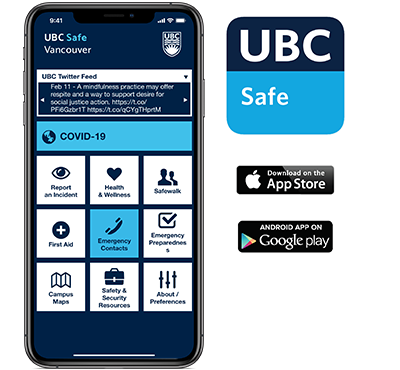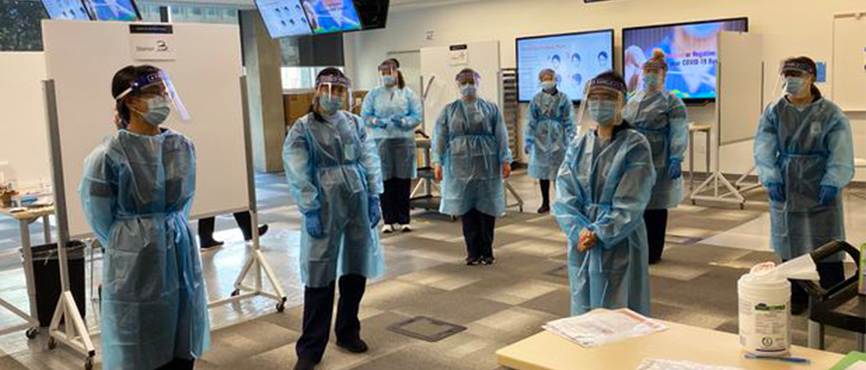Emergency preparedness
Emergency Management at UBC is led by Safety & Risk Services in close collaboration with faculties and departments across campus. Being prepared means planning to prevent, prepare for, respond and recover from hazards and risks that could impact our university community.
The climate emergency is increasing the intensity and frequency of weather-related events, making preparedness more important than ever. Being prepared is a shared responsibility, and by working together, we can build a culture of readiness and help keep our community safe.
Learn more about emergency response at UBC, how to prepare for emergencies, UBC’s notification systems, and hazards of concerns in the sections below.
For questions and inquiries, please email the Emergency Management team.

Emergency response at UBC
UBC has response structures and processes in place to deal with all manner of emergencies, built by the principles of preparedness, response, recovery, and mitigation.

Get prepared
Prepare and learn how to prevent, respond to, and recover from emergencies before they happen so you can protect yourself, your loved ones, and our community.

Get notified
A key step in preparedness is ensuring you and your loved ones can receive key life safety information in an emergency. Learn about emergency communications, and how to receive emergency alerts and safety information.

Hazards of concern
Learn more about how to prepare for and what to do in the event of hazards of concern, including: Active threat, bomb threat, earthquake, extreme weather, evacuation, fire, hazardous material, pandemic, power outage, shelter-in-place, suspicious object, and tsunami.

University Neighbourhoods Associations (UNA)
Emergency management for the UNA community is a shared effort between UBC’s Safety & Risk Services, the UNA, and Metro Vancouver to keep the community safe.

Emergency and non-emergency numbers
Emergency & non-emergency numbers at UBC to assist you with getting to help as quickly as possible.